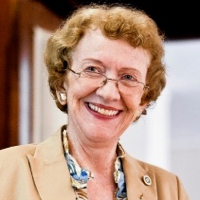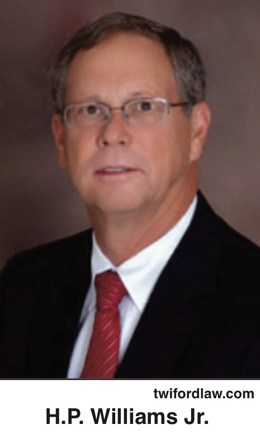Rascals case in brief
In the beginning, in 1989, more than 90 children at the Little Rascals Day Care Center in Edenton, North Carolina, accused a total of 20 adults with 429 instances of sexual abuse over a three-year period. It may have all begun with one parent’s complaint about punishment given her child.
Among the alleged perpetrators: the sheriff and mayor. But prosecutors would charge only Robin Byrum, Darlene Harris, Elizabeth “Betsy” Kelly, Robert “Bob” Kelly, Willard Scott Privott, Shelley Stone and Dawn Wilson – the Edenton 7.
Along with sodomy and beatings, allegations included a baby killed with a handgun, a child being hung upside down from a tree and being set on fire and countless other fantastic incidents involving spaceships, hot air balloons, pirate ships and trained sharks.
By the time prosecutors dropped the last charges in 1997, Little Rascals had become North Carolina’s longest and most costly criminal trial. Prosecutors kept defendants jailed in hopes at least one would turn against their supposed co-conspirators. Remarkably, none did. Another shameful record: Five defendants had to wait longer to face their accusers in court than anyone else in North Carolina history.
Between 1991 and 1997, Ofra Bikel produced three extraordinary episodes on the Little Rascals case for the PBS series “Frontline.” Although “Innocence Lost” did not deter prosecutors, it exposed their tactics and fostered nationwide skepticism and dismay.
With each passing year, the absurdity of the Little Rascals charges has become more obvious. But no admission of error has ever come from prosecutors, police, interviewers or parents. This site is devoted to the issues raised by this case.
On Facebook
Click for earlier Facebook posts archived on this site
Click to go to
Today’s random selection from the Little Rascals Day Care archives….
Click for earlier Facebook posts archived on this site
Click to go to
Today’s random selection from the Little Rascals Day Care archives….
Burgess’s seminar paved way for Little Rascals prosecution

bc.edu
Ann Wolbert Burgess
Aug. 23, 2016
“Connell School of Nursing Professor Ann Wolbert Burgess, a pioneer in the field of forensic nursing and an internationally recognized leader in the treatment of victims of trauma and abuse, has been designated a ‘Living Legend’ by the American Academy of Nursing, the academy’s highest honor.
“Burgess is being recognized this year for multiple contributions to the nursing profession and society. [Her] research and books cover topics such as serial killers and rapists, kidnapping, sexual victimization and exploitation of children, cyber crimes, sexual abuse, and elder abuse….”
– From “A ‘Living Legend’ ” by Kathleeen Sullivan in the BC [Boston College] News (Aug. 23)
Yet again, a key fomenter of the “satanic ritual abuse” day care panic takes a career achievement bow, plowing unapologetically past the wrecked lives of the wrongfully prosecuted.
Here’s how Debbie Nathan and Michael Snedeker described Burgess in 2001 in “Satan’s Silence: Ritual Abuse and the Making of a Modern American Witch Hunt”: “promoter of the use of children’s drawings to diagnose sexual abuse, developer of the idea of the sex ring, participant in developing the case that imprisoned the Amirault family and currently a researcher into the traumatic aftereffects of ritual abuse.”
Most grievous for the Little Rascals defendants, it was Ann Wolbert Burgess who led a three-day conference in Kill Devil Hills just months before Bob Kelly’s arrest. The agenda: learning how to spot child molesters operating day-care facilities.
I’ve asked Professor Burgess to look back at her role in Little Rascals. No response – maybe she intends to bring it up in her acceptance speech.
![]()
It’s not just politics that make strange bedfellows
 June 23, 2014
June 23, 2014
“The emphasis has got to be on the crime. Once you start using labels like satanic, sadistic or ritualistic, then you’re immediately raising a red flag…. Law enforcement, prosecutors, judges, mental health professionals and especially the general public begin to back off, because it’s so hard to believe these things happen…. We emphasized rape, sex offense, indecent liberties, crimes against nature…Those were the crimes that Bob Kelly was convicted of, those are what the jury heard evidence of….
“We let the defense attorneys bring out the sadistic and ritualistic….”
– From District Attorney H. P. Williams Jr.’s address to “From Heartbreak Through Healing: Facing the Reality of Sexual and Ritual Abuse of Children,” the first national convention of Believe the Children (April 2-4, 1993, in Arlington Heights, Ill.)
I transcribed Williams’ cautionary prosecutorial advice from audiotapes, so I can only imagine the scene on the speakers’ dais he shared with not only one of the Little Rascals mothers, but also Laura Buchanan, author of “Satan’s Child: A Survivor’s Story That Can Help Others Heal from Cultic Ritual Abuse.”
What must have Williams been thinking as Buchanan earnestly recalled that:
“We stood poised with knives in an incomprehensible world where children killed children…. Permitted to live until age four (my sister) was sacrificed by my parents…. My final programming, as a teenager, occurred on an autopsy table in the coroner’s office. A surgical procedure was staged and through a small incision in my scalp I was told that a surveillance device would be inserted into my brain. The supposed implant would be used at national headquarters to continuously monitor my thoughts. For decades the programming was extremely effective. Until the age of 44, I had no idea that my parents practiced satanism….”
With Bob Kelly and Dawn Wilson locked away, and the overturning of their convictions still two years away, DA Williams was riding high. But surely he must have experienced the slightest frisson of doubt when he saw Buchanan’s patent insanity being swallowed whole by the same audience that so enthusiastically applauded his case against the Edenton Seven.
City sidewalks, busy sidewalks: An upbeat dispatch from the DNC
Sept. 7, 2012
Having met with less than overwhelming interest earlier in the week in front of the bustling Charlotte Convention Center, I narrowed my focus.
Thursday I situated my “Exonerate” placard at the entrance to the peripheral and unhurried Crowne Plaza hotel, convention headquarters for the North Carolina Democratic Party, and our message was well received (except for an overly territorial security guard).
Not only did several delegates express support for the Edenton Seven, but also a dozen or so more took cards with the site address. And I was able to bend the ears of reporters from Greensboro, Rocky Mount and the Outer Banks, as well.
Yes, the delegates are mostly ordinary folks, not influential officials – I didn’t see Gov. Perdue – but I’m grateful they will take home a greater awareness of this shameful injustice, still unaddressed, in their own state.
Prognosis uncertain for misled child-witnesses
May 7, 2012
From an exchange with Stephen Ceci, author (with Maggie Bruck) of the landmark “Jeopardy in the Courtroom: A Scientific Analysis of Children’s Testimony” (1995):
Q: What may have happened to the child-witnesses as a result of being so profoundly misdiagnosed? One Little Rascals child-witness who responded anonymously to an advertisement I placed in the Edenton paper continues to say she was abused by Bob Kelly, although she admits to doubts about the female defendants.
A: We lack good scientific data on the long-term beliefs of individuals who as children were suggestively interviewed. A handful of studies, none of which resemble allegations of sexual abuse, seem to indicate that they grow up with the belief that they were abused, replete with the same psychological sequelae of true abuse survivors.
But you’ll note I use phrases such as “seem to indicate,” because the data are not uniform or consistent and the scenarios are not sex abuse ones. I think many, perhaps most, memory researchers would expect someone who was convinced as a child that he or she was victimized to grow into an adult with the same problems seen in actual victims, e.g., distrust of authority figures, insecurity, etc..
–
What extreme caution Dr. Ceci, an unsurpassed authority on child abuse, uses not to present theory and speculation as fact…. If only the therapists and theoreticians behind the day-care-abuse mania had shown half the professional uncertainty….











0 CommentsComment on Facebook